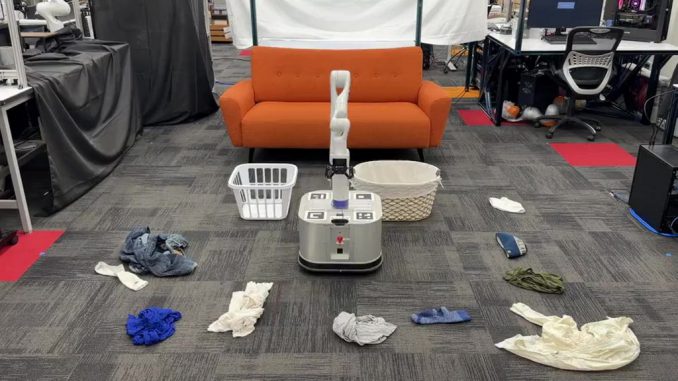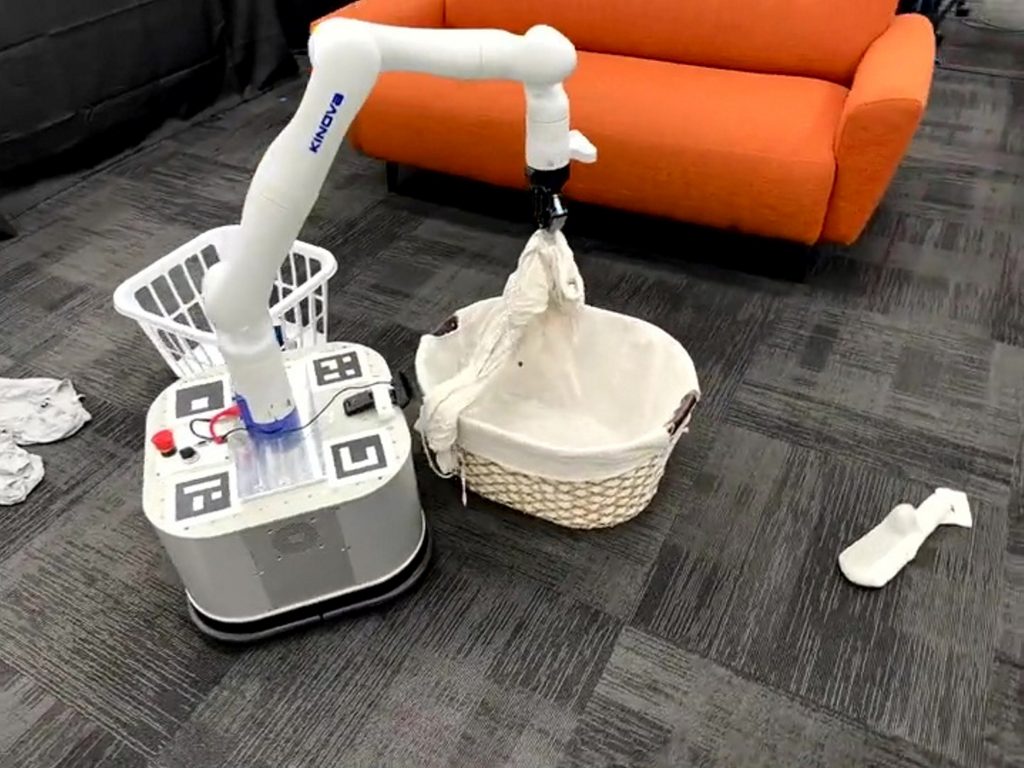
By Dean Murray
Your lazy teenager problem could soon be solved, thanks to TidyBot.
Researchers at Princeton University have developed robots that can spruce up rooms by picking up objects and putting them away.
Useful demonstrations have included sorting laundry into lights and darks, identifying recyclable drink cans and putting items where they belong.
The clever bot is also seen placing toys into a drawer and even accurately tossing drink cans into the bin.
Princeton’s School of Engineering explains: “For a robot to personalize physical assistance effectively, it must learn user preferences that can be generally reapplied to future scenarios.
“In this work, we investigate personalization of household cleanup with robots that can tidy up rooms by picking up objects and putting them away.”
The team says a key challenge is determining the proper place to put each object, as people’s preferences can vary greatly depending on personal taste or cultural background.
“For instance, one person may prefer storing shirts in the drawer, while another may prefer them on the shelf,” they add.
The researchers aim to build systems that can learn such preferences from just a handful of examples via prior interactions with a particular person.

They created TidyBot, a real-world mobile manipulator, to test the theory. It managed to successfully put away 85% of objects in real-world test scenarios.
The team say: “We aim to build systems that can learn such preferences from just a handful of examples via prior interactions with a particular person.
“We show that robots can combine language-based planning and perception with the few-shot summarisation capabilities of large language models (LLMs) to infer generalized user preferences that are broadly applicable to future interactions.
“This approach enables fast adaptation and achieves 91.2% accuracy on unseen objects in our benchmark dataset.”
Produced in association with SWNS Talker
The post Princeton’s TidyBot Solves Teenager Mess Problem With Robot Cleaners appeared first on Zenger News.
